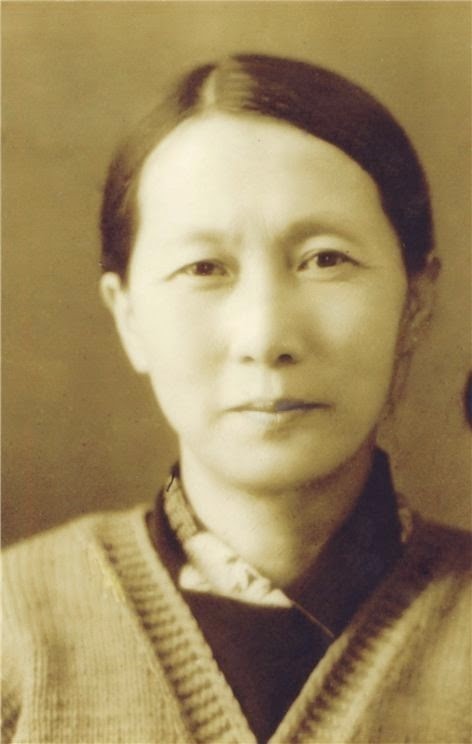
주세죽
한국 근대의 파란과
세계사의 격랑 속을 살며
그는 사는 내내
몇 번이나 독립해야 했지
함경남도 함흥 고래등 같은 집안으로부터
일찍 독립해야 했지
상해음악학교 절대음감이던
예술가의 길로부터도 독립해야 했지
한국 근대 최초의 여성해방론자
한국 근대 최초의 여성사회주의자 그룹의 핵심
모든 봉건적 관념과 질서와 예속
모든 제국의 지배로부터 독립해야 했지
상해로 서울로 블라디보스토크로
모스크바로 다시 상해로 다시 모스크바로
그는 혁명을 위해 어느 때고
어떤 국경과도 이별해야 했고
네 살 어린 자식과 이별해야 했고
두 명의 남편과 이별해야 했고
세계 인민의 모국 코민테른과 함께하며
때론 조국으로부터도 독립해야 했지
3·1 만세운동
제1차 조선공산당 조직사건
6·10 만세운동
피랍 직전 소련으로의 망명
그리곤 누명에 의한 숙청까지
네 번의 감옥과
긴 지하생활과 유배생활을 견뎌야 했지
고려공산청년회, 조선공산당
조선여성해방동맹, 전조선민중운동자대회
항일여성운동단체 근우회 등과 함께했지
죽어서도 사회주의자라는 까닭으로
남한으로부터 배척받아야 했고
미제 간첩 박헌영의 아내였다는 까닭으로
북으로부터 지워지고
일제 간첩이라는 누명으로
코민테른으로부터도 삭제되어야 했던
그는 누구일까
신여성 트로이카, 맑스걸, 조선의 여자,
동방의 애인, 레이디 레닌 등으로 불려졌던
그는 누구일까
오늘도 혁명가로, 전사로 호명되지 않고
조선 최고의 미인으로, 누군가의 아내로, 스캔들로 소비되는
그는 누구일까
조선 최고의 엘리트였다가
먼 이국의 유형지 사막에서 피혁공장 개찰원
협동농장 인부 방직공장 직공으로
강제노동을 하다 스러진 그는 누구일까
조국으로부터도 혁명으로부터도 배반당한
그는 누구일까
역사로부터 지워진 것은
진실로부터 지워진 것은 그가 아니라
오늘도 반쪽짜리 조국에 살고 있는 우리 아닐까
여전한 가부장들의 제국
자본의 제국 핵무력의 제국 안에서
어떤 사상적 독립도 상상하지 못하며
창살 없는 감옥을 사는 우리 모두 아닐까
1989년 소련공산당은
코레예바* 주세죽과
그의 두 번째 남편으로 처형당했던 김단야의
일제 간첩 혐의가 누명이었음을 인정하고
명예를 회복시켰다
2007년 대한민국은 그의 항일투쟁을 인정해
건국훈장 애족장을 추서했다
조선인민민주주의공화국에서는
아직 그에 대한 공식 평가가 없다
손석춘의 소설『코레예바의 눈물』과
조선희의 소설『세 여자』로
주세죽은 긴 세월이 흘러 우리 곁으로 돌아왔지만
사랑과 혁명이라는 영원한 미로 속에서
그의 고독은 오래 지속될 것이며
눈물은
오래도록 마르지 않을 것이다
* 코레예바 : ‘조선의 여자’라는 뜻으로 박헌영이 모스크바 망명 당시 부인이었던 주세죽에게 붙여준 소련식 이름이다.
Ju Se-juk
Living through the turmoil of modern Korea
And on the heavy seas of world history,
She
Had had to achieve independence over and over again.
Early on, she had to gain independence
From her family’s palatial home in Hamheung, Hamgyeongdo province.
And she also had to become independent from the road of an artist,
As a musician with absolute pitch, trained at the Shanghai Conservatory of Music.
As the first modern Korean proponent of women’s liberation,
And a leader of the first modern Korean women socialists’ group,
She also had to attain independence from all feudal ideologies, orders, and subjections,
As well as from all kinds of imperial dominance.
To Shanghai, Seoul, and Vladivostok,
To Moscow, back to Shanghai, and back again to Moscow—
She had to say good-bye to any boundaries
At any moment for the sake of revolution,
To her four-year-old child,
To her two husbands.
While working with the Comintern, the mother country of all people of the world,
Sometimes, she also had to achieve independence from her own country.
From the March 1 Independence Movement,
Through the first Communist Party of Korea Organization Incident,
The June 10 Independence Movement,
And an exile in the Soviet immediately before she was about to be abducted,
To a purge based on false charges—
She had to endure a life underground and in exile all her life.
She worked with the Korean Alliance of Women’s Liberation, the Korean People’s Activists’ Conference,
And the Geunuhoe, an anti-Japanese women’s movement organization.
Even after death, she was ostracized from South Korea
For being a socialist,
While erased from the North
Because she was the wife of Pak Hon-yong, branded an American imperialist spy,
And omitted from the Comintern
Because of the false claim that she was a Japanese spy.
Who was she–
She who was called a new woman, member of a troika, Marx girl, Korean woman,
An Eastern lover, and Lady Lenin—
Who was she?
She, who is not called a revolutionary or fighter, even today,
But consumed as the beauty of her time, the wife of a famous personage, a heroine of a scandal—
Who was she?
She, who as one of the most well-educated elites in Korea,
Had to disappear during forced labor into the desert of a faraway country’s place of exile,
As a ticket examiner of a tannery,
A hand at a cooperative farm, a laborer in a textile factory?
She, who was betrayed by both her motherland and the revolution—
Who was she?
What is erased from history,
What is erased from truth may not be her,
But we who are living in a halved country—
All of us, who inhabit a prison without bars,
Unable to imagine ideological independence,
Within the empire of patriarchs,
Within the empire of capital, the empire of nuclear powers.
In 1989, the Communist Party of the Soviet Union
Acknowledged that the charge of being Japanese spies
Leveled against Koreyeva Ju Se-juk
And her second husband, Kim Dan-ya, who was executed for the charge,
Were made falsely. And their honor was restored.
In 2007, the South Korean government, acknowledging her anti-Japanese struggles,
Conferred posthumous honors, awarding her the Order of Merit for National Foundation.
No official appreciation has been expressed
As yet in North Korea.
Although, through Son Seok-chun’s Koreyeva’s Tears and
Cho Sun-hee’s Three Women,
Ju Se-juk returned to us after a long detour,
Her loneliness will last for a long time
Within the eternal maze of love and revolution,
And her tears
Will not dry for a long time.
* “Koreyeva” was the Russian-style nickname that Pak Hon Yong, her first husband, gave her while they were in exile together in the Soviet Union.
Translated by Seung-Hee Jeon (literary critic and translator, editor of Asia: A Magazine of Asian Literature)










